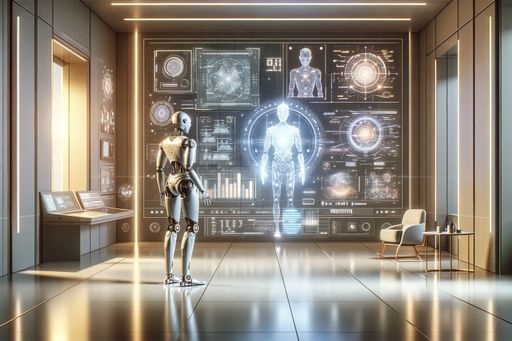'Yellowstone' star Lainey Wilson testifies AI using her voice was 'gut punch': 'It is a personal violation'
Lainey Wilson, the 'Heart Like a Truck' singer, testified before Congress about her experience as a victim of AI. She emphasized the importance of giving musicians a choice in allowing AI platforms to use their voices. Wilson also discussed the broader implications of AI on privacy and personal rights.

Lainey Wilson Shares Her Experience as a Victim of AI
Lainey Wilson, the star of the television show 'Yellowstone', testified before Congress during a hearing on artificial intelligence and intellectual property. Wilson shared her personal experience as a 'victim' of AI, highlighting the unauthorized use of her voice in AI-generated content. She described it as a 'gut punch' and a personal violation.
During the hearing, an example was given using Johnny Cash's voice singing the lyrics of 'Barbie Girl' to the tune of 'Folsom Prison Blues'. Wilson explained that many artists are now facing similar situations where their voices are used without their consent in 'questionable settings' or singing lyrics they would never write.
Wilson expressed her frustration and emphasized that her music and voice are her artistic expression and a part of her identity. She stated that having her name, likeness, or voice used in ways she did not imagine or allow is wrong and plain and simple.
Musicians Should Have a Choice in Allowing AI Platforms to Use Their Voices
Wilson stressed the importance of musicians having a choice in allowing AI platforms to use their voices to create new content. She shared an example of her likeness being used to promote weight-loss gummies, which she would never endorse. As an artist with young fans, she wants to encourage them to feel comfortable in their own skin and prioritize self-love.
According to Wilson, some creators may be fine with AI platforms using their voices and likenesses, while others may not. However, the key point is that it should be the artist's choice, not a decision made by AI cloning companies. AI-generated content that misrepresents an artist's identity or uses their likeness in inappropriate ways is unacceptable.
Wilson explained that an artist's voice and likeness are their property and should not be overshadowed by the economic interests of companies that have not collaborated with or invested in the artist.
AI's Impact on Privacy and Personal Rights
While Wilson primarily focused on the experiences of music artists and AI-generated content, she also highlighted the broader impact of AI on privacy and personal rights. She mentioned instances where AI technology was used to create deepfake porn using the faces of high school girls and vocal clones that deceived elderly citizens into giving away their savings.
Wilson expressed gratitude that action is being considered to ensure responsible use of AI tools. She urged the need for protection not just for artists, but also for fans and individuals who may be affected by AI technologies. She emphasized the importance of using AI in a responsible and ethical manner.



